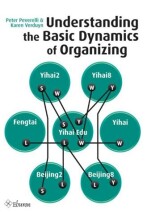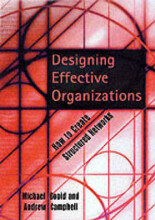Cooper: maximizing productivity in product innovation
12 important questions on Cooper: maximizing productivity in product innovation
Businesses today are preoccupied with minor modifications, product tweaks etc. and true product development has taken a back seat. There are huge differences in productivity between the best and the worst performers. Data gain insight into what the secrets to high productivity are. Explain those secrets/principles? (Cooper)
The message of Cooper is clear If you want your business to be among the best performers in NPD: adopt
and embrace the 7 principles of lean, rapid and profitable NPD. This
leads to improved performance and higher productivity. What are the 7 principles?
2 Front-end loaded
3 Spiral development
4 Holistic approach driven by effective cross-functional teams
5 Metrics, accountability and continuous improvement
6 Focus and effective portfolio management
7 Nexgen stage-gate process
Explain what high productivity businesses do different regarding the 1st principle 'customer focused'? (Cooper)
2 New products offer better value for money
3 New products meet customers needs better than competing products
- Higher grades + faster learning
- Never study anything twice
- 100% sure, 100% understanding
Regarding customer focused principle the customer must be an integral part of the entire deveopment process. Companies need to build the customer in their development processes. Which 6 different methods of undertaking VoC (voice of customer) by best performing businesses are indentified by Cooper?
2 Camping out or ethnography (observing customers use/abuse/misuse products in daily routine)
3 Lead user analysis (identify innovative customers and work with them)
4 Focus group problem detection sessions (let customers tell their problems during a round table discussion)
5 Brainstorming group events with customers (invite customers tot a innovation day for brainstorming etc.)
6 Crowd sourcing using online or IT-based approaches (opening the doors to external inputs/wishes via webpage/internet for 'open innovation')
What is meant with the second principle of Cooper "Front-end loaded"?
What is according to Cooper a good beginning list of front-end work and should be built into one's idea-to-launch system? (8)
2 Technical assessment (technical solution, development route, technical challenges etc.)
3 Source-of-supply assessment (operating requirements, material/equipment needs, alliances etc.)
4 Market research (customer research)
5 Concept testing (present product and analyse feedback)
6 Value-to-the-customer assessment (quantify the products value)
7 Product definition (product scope, target market, product concept, trget price etc.)
8 Businesses and financial analysis (f.e. internal rate of return)
In traditional linear development the project team charges into the development stage with a product definition based on information that might have been right at a time. It's better to practice spiral development. What is this third principle according to Cooper?
The 4th principle is the holistic approach driven by effective cross-functional teams. Explain those cross-functional teams according to Cooper?
Explain the 5th principle of Cooper regarding new product development/high productivity?
Most companies do a poor job of ranking/prioritizing development projects. This results in low productivity. The 6th principle: focus and effective portfolio management, prevents this according to Cooper. Which 4 tools should be included in the portfolio system (and make better portfolio decisions)?
2 Product and technology roadmaps (to map out the major development initiatives)
3 Scorecards (to select/prioritize the best development projects)
4 The productivity index (to maximize economic value of the portfolio)
Many businesses processes contain much bureaucracy, time wasters and make-work-activities. What do smart companies do regarding this and is also the 7th principle of Cooper?
Explain the 7th principle 'NexGen Stage-gate process'? (Cooper)
The question on the page originate from the summary of the following study material:
- A unique study and practice tool
- Never study anything twice again
- Get the grades you hope for
- 100% sure, 100% understanding





























